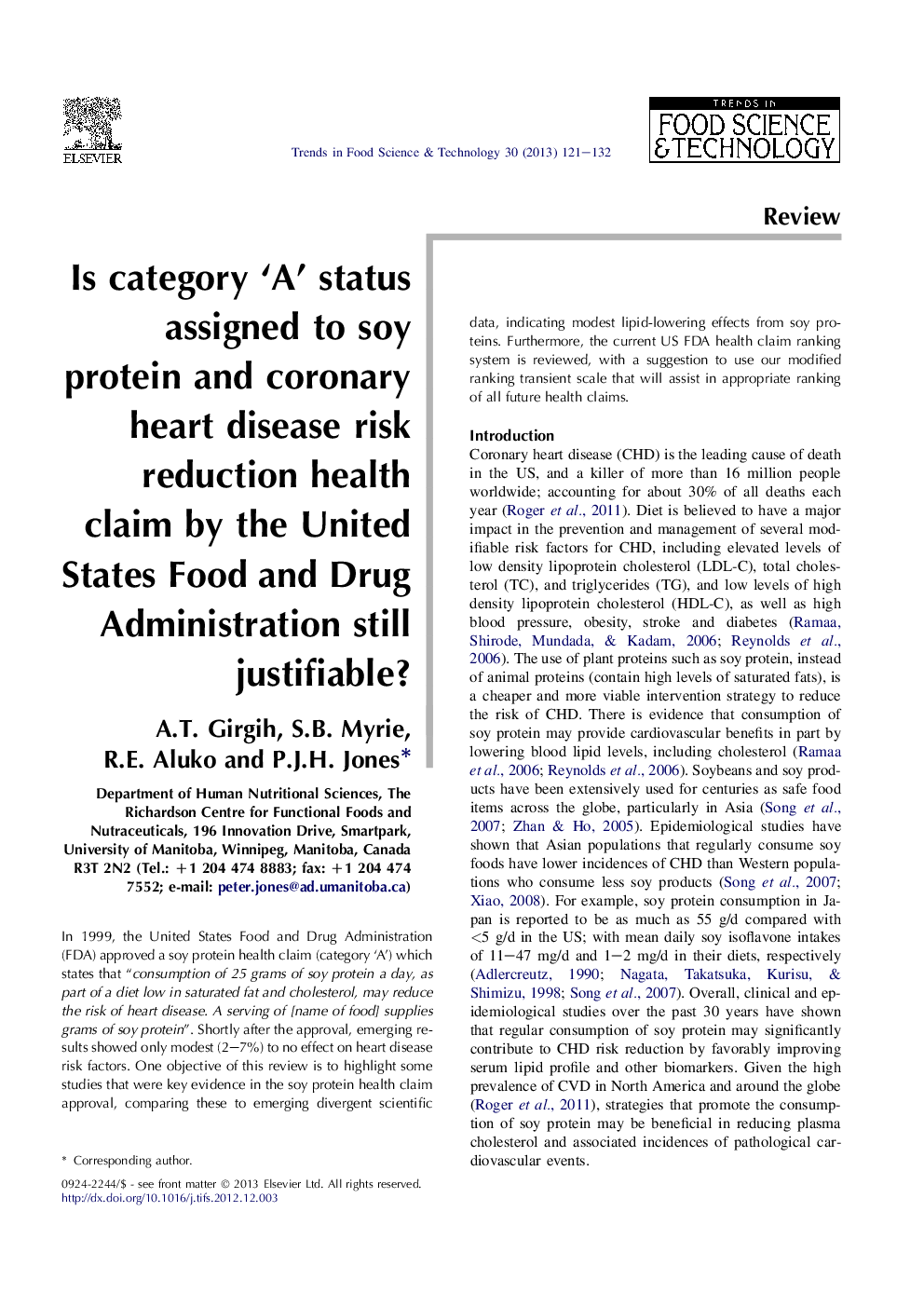| Article ID | Journal | Published Year | Pages | File Type |
|---|---|---|---|---|
| 2098752 | Trends in Food Science & Technology | 2013 | 12 Pages |
In 1999, the United States Food and Drug Administration (FDA) approved a soy protein health claim (category ‘A’) which states that “consumption of 25 grams of soy protein a day, as part of a diet low in saturated fat and cholesterol, may reduce the risk of heart disease. A serving of [name of food] supplies grams of soy protein”. Shortly after the approval, emerging results showed only modest (2–7%) to no effect on heart disease risk factors. One objective of this review is to highlight some studies that were key evidence in the soy protein health claim approval, comparing these to emerging divergent scientific data, indicating modest lipid-lowering effects from soy proteins. Furthermore, the current US FDA health claim ranking system is reviewed, with a suggestion to use our modified ranking transient scale that will assist in appropriate ranking of all future health claims.
► Role of soybean protein in cardiovascular disease prevention remains controversial. ► Approval of soybean protein health claim needs to be re-examined based on emerging data. ► The European Food Safety Authority recently rejected the soybean protein petition. ► A fifth health claim approval category is proposed for nutrients with weak scientific data.
